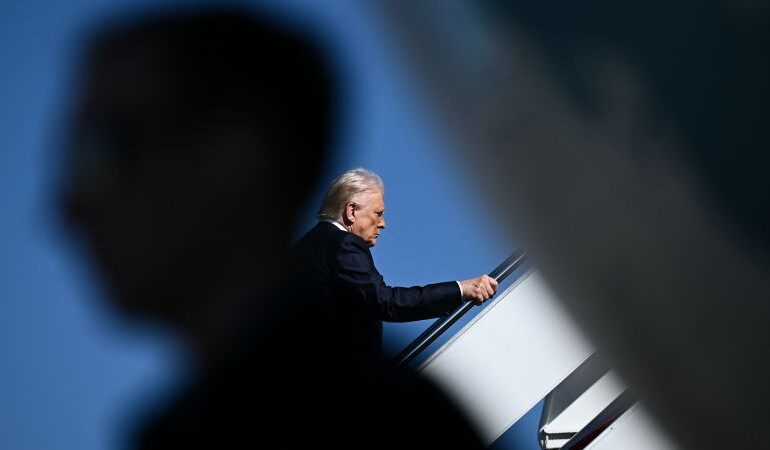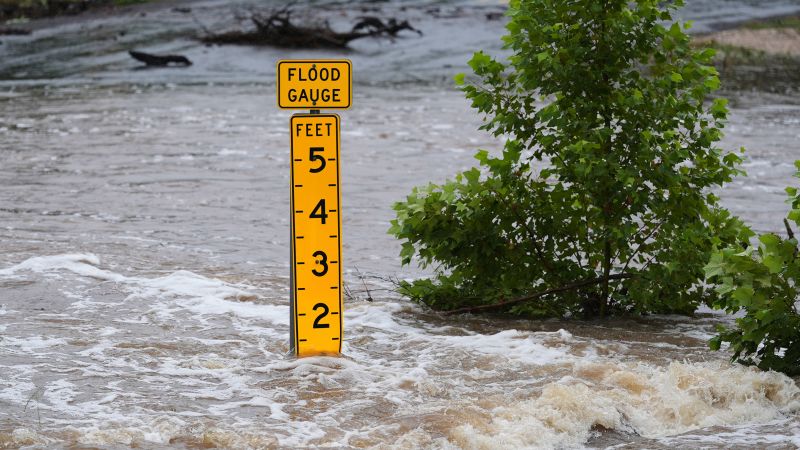GOP Faces Dilemma Over Presidential Power Amid Trump Era

Over the past nine months, congressional Republicans have largely refrained from challenging President Donald Trump as he has sought to expand presidential authority and undermine established norms. However, concerns are beginning to surface regarding the long-term implications of these actions, particularly about how a future Democratic administration might wield similar powers. The ramifications of this unchecked expansion of authority are prompting a reassessment among Republican lawmakers.
A significant moment occurred during oral arguments at the Supreme Court on March 15, 2024, where justices debated Trump’s global tariffs. A CNBC host had previously questioned Treasury Secretary Scott Bessent about the potential for a Democratic president to impose heavy tariffs based on an emergency declaration regarding climate change. Bessent hesitated, questioning the existence of such an emergency, but the core issue remained: the Trump administration has argued that a president’s declaration could stand unchallenged, regardless of the factual basis.
During the Supreme Court proceedings, Justice Neil Gorsuch, appointed by Trump, pressed the administration’s solicitor general, D. John Sauer, on whether a president could impose a steep tariff simply by citing a climate emergency. Sauer conceded that it was “very likely” such actions could occur, illustrating a potential avenue for future administrations to exploit.
Concerns about the implications of Trump’s executive actions extend to discussions surrounding the legislative filibuster. Recently, Trump has advocated for the so-called “nuclear option,” which would lower the threshold for passing legislation from 60 votes to a simple majority. This change could facilitate the passage of policies that Republicans currently oppose but may find themselves at risk of facing if Democrats regain control.
House Speaker Mike Johnson has voiced apprehensions about the consequences of eliminating the filibuster, predicting that Democrats could expand their influence by granting statehood to Puerto Rico and the District of Columbia, potentially adding more Democratic senators to Congress. He warned that without the filibuster, legislative control could shift dramatically, allowing Democrats to push through policies that Republicans view as detrimental.
Senators Roger Marshall and Dave McCormick echoed these sentiments, cautioning against a future where the Democratic Party could enact extreme measures without bipartisan support. McCormick expressed concern that a lack of a filibuster would lead the nation towards socialism under a Democratic administration.
Additionally, some Republicans have raised alarms about Trump’s deployment of the National Guard across various states. North Carolina Senator Thom Tillis articulated fears that a future Democratic president could similarly mobilize troops in Republican-controlled states. Oklahoma Governor Kevin Stitt highlighted the implications of a president collaborating with governors to impose federal authority in states that resist such actions.
While Vice President JD Vance downplayed these concerns during a recent event, stating that Republicans should not fear potential future actions by Democrats, the apprehension remains palpable within the party. Former President Barack Obama recently pointed out the hypothetical backlash if he had deployed the National Guard in a Republican state, illustrating the contentious nature of such executive powers.
The Trump administration’s assertions of unchecked presidential power continue to pose questions about the balance of authority between the executive branch and the judiciary. During a June appeals court hearing, a Trump-appointed judge pressed Department of Justice officials regarding the unreviewability of a president’s decisions to mobilize the National Guard, suggesting that such actions could occur without judicial oversight.
Despite these hypothetical scenarios, Republican lawmakers have yet to take significant steps to rein in Trump’s expansive view of presidential power. The recent elections, during which Democrats achieved notable victories, serve as a reminder that the political landscape can shift quickly, leaving open the possibility that the balance of power may soon change.
Trump has suggested that consolidating power could prevent Democrats from regaining influence. He told GOP senators that if they followed his lead on the filibuster, they could pass extensive legislation that would secure Republican dominance. Yet, skepticism persists among Republican lawmakers regarding the feasibility of such a strategy.
As the political climate evolves, the ongoing debate within the GOP about the implications of Trump’s presidency underscores a critical juncture in American governance. How Republicans navigate these challenges will shape the party’s future and the broader framework of executive power in the United States.






